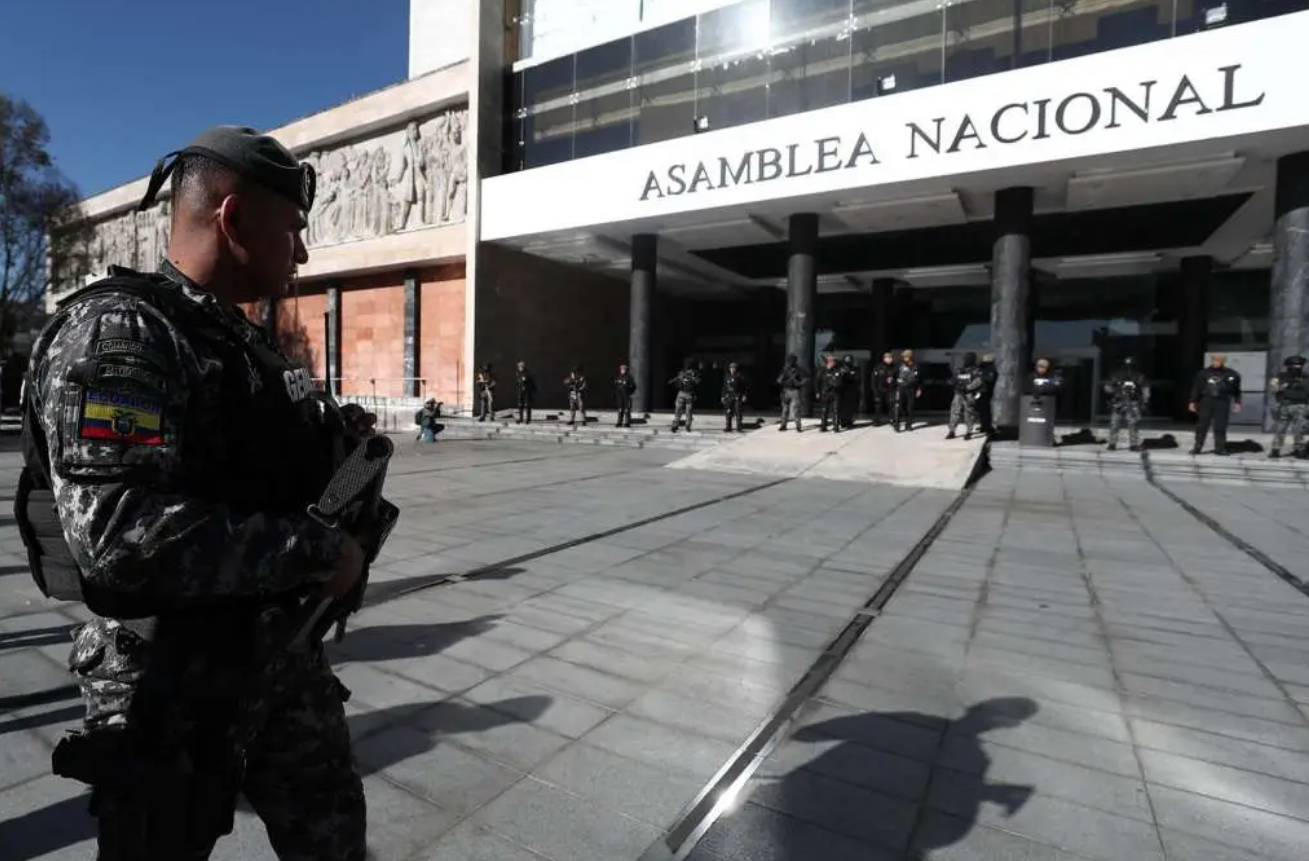Guillermo Lasso will complete two years in the Ecuadorian government on May 24. In this period, he has survived three impeachment attempts varying in type and intensity. In June last year, he overcame a national strike of 18 consecutive days, which was led by the Confederation of Indigenous Nationalities of Ecuador (CONAIE), with Leonidas Iza at the head; then followed the vote in the Assembly to get his early departure and a group of opponents collected signatures for the recall of his mandate.
Ecuador’s president is a survivor of left-wing and right-wing opposition. The first, embodied by the Citizen Revolution, of former president Rafael Correa and the indigenous movement Pachakutik, which has several leaders, and the second, from the right of the Social Christian Party, with its historical figure, Jaime Nebot, former mayor of Guayaquil.
In these two years of government, Lasso has not achieved an inter-party political agreement that would allow him to govern; rather, he has always been on the edge of the cliff. This has completely limited his administration, and he has not even achieved a social pact with citizen organizations.
The President’s decision to dissolve the Assembly (“mutual death“), protected by Article 148 of the Constitution of the Republic and issued through Executive Decree 741, took place in a context of simultaneous crises: from generalized insecurity throughout the country, a high unemployment rate, dissatisfaction with public health services, legislative blockage, to a limited governmental management capacity in the social area. On the positive side, the balance of the macroeconomic accounts stands out.
Lasso dissolved the Assembly before being politically judged in the process for embezzlement. The Constitutional Court approved the continuity of the trial under this reason and the Audit Commission of the legislature based the process without a consensus report of its nine legislators. In addition, there was no conclusive evidence regarding this crime. Thus, the opposition wanted to cut off the president’s head for reasons ranging from mental incapacity to popular discredit.
After the “mutual death” procedure, for the moment, there have been no protests in the streets of Ecuador. The rejection of the Assembly is wide, and it barely had 5% of acceptance. It is the worst-evaluated legislature since the transition to democracy in 1979. And not even the indigenous movement has launched its announced protests against the Government, as the context does not favor them.
President Guillermo Lasso also has a very low approval rating. Only 13% of Ecuadorians approve of his administration, and he has also made a record in the last year, as his attrition has been intense and accelerated.
What is coming?
The mutual death implies early elections to choose the presidential binomial and the Assembly for the time remaining to the two functions of the state for the period 2021-2025. In other words, there is an electoral atmosphere, as political organizations are in search of the best candidates for the next year and a half. The situation is complex, the new local authorities have just taken office and the population is forced to return to the polls in a scenario marked by disrepute for politics and civic fatigue.
In the remaining time, the president will be able to govern by decrees, as long as the Constitutional Court approves them. Lasso has only six months to demonstrate that he can concretize some of his campaign offers, such as reducing unemployment, improving the health system and access to education, and, above all, fighting insecurity. The ruling party has not yet mentioned who would take the post. Although the president may be a candidate again, the numbers are against him.
In the future, the question remains whether the mutual death is a remedy or a new disease for the Ecuadorian political system, since any president, without a legislative majority and suffering the political blockade, could apply it before completing three of the four years of government.
For the moment, the president has received the rejection of the opposition, the approval of the diplomatic corps accredited in the country, and the backing of the forces of law and order. Only time will tell if Lasso made the best decision.
*Translated from Spanish by Janaína Ruviaro da Silva













